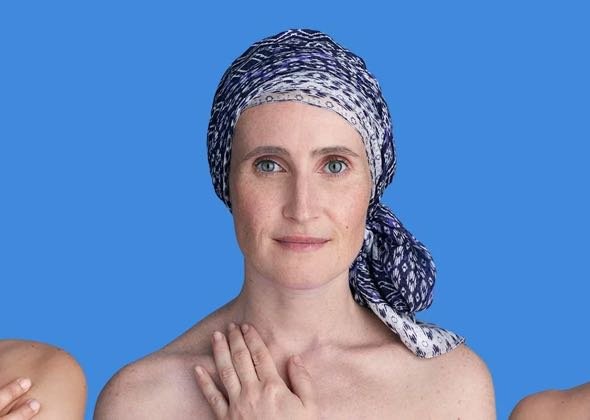WHAT CAUSES DRY SKIN?
Why do dry, itchy patches of skin appear?
Dry skin occurs on the face or body when our skin loses its ability to protect itself – when its “skin barrier function”, or protective layer, has been weakened. Fewer and fewer lipids (oily substances) are produced at the skin’s surface. Skin cells lose their capacity to retain water, which then evaporates.
Different factors can cause skin to become dry and itchy:
- Genetics (dry skin may run in your family)
- Very cold temperatures and wind
- A hot and dry climate
- Central heating and variations in indoor and outdoor temperatures
- Sunshine (UV light)
- Harsh products such as astringent (or skin-drying) soap
- Fragrances and other additives in unsuitable cosmetics
How to tell if you have dry skin
To work out if you have dry skin, ask yourself the following questions:- Is the skin rough to the touch?
- Does it feel “tight” like it’s a size too small?
- Can you see surface cracks, chapping or flaking?
If you answered yes to any or all of these questions, you probably have dry skin. If, on top of these signs, your main symptom is intense itching, you are more likely to have atopic eczema. Click HERE to find out more about the difference between dry skin and atopic eczema.
LIFESTYLE TIPS
IF YOU HAVE DRY SKIN
• If you live in a dry region, consider investing in a humidifier for your home
• Avoid overheating your bedroom. You don’t have to feel chilly, but try switching the heating off at night in winter or leaving the window open in summer
• Take brief, lukewarm showers or baths rather than hot ones
• Gently pat rather than rub yourself dry
• Make sure you drink enough water. Try to get into the habit of sipping water while working (if your job permits!) and drink plenty before and after exercise or in hot weather
• Use adapted daily care products: Wash using gentle products such as soap-free gels or micellar waters and apply nourishing moisturising creams to soothe and protect the skin. Read on to find our expert recommendations.
HOW TO GET RID OF
DRY, FLAKY SKIN
Treating dry skin on the face
For the face, follow a cleansing and moisturising regime using products suitable for dry skin. Cleanse with a gentle soap-free cleanser like TOLERIANE caring wash and follow up with expert daily care for dry to very dry sensitive skin such as the new TOLERIANE Ultra 8, a daily hydrating mist as light as water more hydrating than a moisturiser or TOLERIANE Sensitive Riche to intensively reconstitute skin’s upper layers.
Treating dry body skin
Effective moisturisers needn’t be thick and oily or a chore to apply! For dry skin on the body, choose a product such as LIPIKAR Lait which soothes and replenishes skin in a light and fluid yet ultra-moisturising lotion. Applying your body moisturiser should a pleasure, as regular consistent moisturisation is essential to reduce the effects of dry skin. Extra tip: Be sure to apply your body lotion daily, particularly after each shower or bath.
Change of season? Change of cream!
Just as you would wear heavier clothes in the winter and cooler ones in the summer, try opting for richer cream textures in winter and lighter ones in summer. Why? During the winter months, skin tends to become much drier.The cold, the wind, too much heating, and differences in indoor and outdoor temperature are all factors which aggravate and dry out your skin.
If you feel that the condition of your skin varies according to the season, try winter-friendly formulas such as NUTRITIC Intense Riche for the face and LIPIKAR Baume AP+ for the body. By contrast, in summer, when skin tends to be a little oilier, opt for lighter textures such as TOLERIANE Ultra 8, for face and LIPIKAR Lait for body.
Take particular care with dry hands
Dry hands can be a real challenge as we’re always using our hands, and they are in regular contact with water. Creams for dry hands should be used frequently throughout the day, especially during the winter months. See our guidelines below if your hands are irritated or if you suffer from dermatitis or atopic eczema on your hands.
HOW TO TAKE CARE OF
PERSISTENTLY IRRITATED SKIN
Chapping and irritation: A common complaint that can be addressed
Around 20% of the population have chronically irritated skin. This takes the form of chapping, especially areas exposed to the cold such as lips and hands, or areas subject to rubbing. Dry rough patches can also develop on the cheeks, around the mouth and on the arms, especially in children. Some people suffer from “perleche”, which are sores at the corners of the lips (not to be confused with cold sores, which are caused by a virus).
Many people feel embarrassed and frustrated as dry patches and rashes are often visible. They may dread summer and exposing their skin on the beach, or even give up swimming altogether due to their condition. It’s clear that irritated skin can have a serious impact on a person’s life. Luckily, with a few smart habits and the right expert skincare products, dry to extremely dry skin can get better.
As ever, good daily care habits are a must to deal with your atopic-prone skin:
• Cleanse irritated or damaged areas of skin with La Roche-Posay Thermal Spring Water
• If necessary, use protective gauze over the affected area
• 2 or 3 times a day, apply a treatment formulated to protect skin and speed up its repair such as CICAPLAST Baume B5
• If the area is exposed to the sun, use a product with SPF on damaged, healing skin to prevent the risk of brown marks (post-inflammatory hyperpigmentation, PIH).CICAPLAST Baume B5 SPF50 EAT filters out the UV rays responsible for brown marks
• Use make-up suitable for dry and sensitive skin such as TOLERIANE Cream Foundation
Especially for hands
• Apply hand cream regularly. Irritated skin is more sensitive to fragrances and certain ingredients, so choose your hand cream with care. CICAPLAST Mains is an alcohol- and fragrance-free solution to soothe, repair and protect dry, chapped hands. It has been tested on damaged, over-worked hands, and works for both home and professional-use.
• Use a specially-formulated hand wash for irritated, dry skin such as CICAPLAST Lavant B5
• If your hands are in regular contact with water, food, etc. consider using protective gloves (but watch out for latex allergy!)
• For household chores and outdoor tasks (e.g. washing dishes, gardening) use cotton liners inside regular household or other gloves
SO, WHAT IS THE DIFFERENCE
BETWEEN ATOPIC ECZEMA AND DRY SKIN?
Do I have atopic eczema or dry skin?
Atopic eczema and dry skin are distinct conditions.- In the case of dry skin, the protective surface barrier (or “hydrolipidic film”) is weakened by external aggressors (pollution, harsh products, cold weather, etc.) leading to visible dryness, flaking, chapping or cracked skin.
- Atopic eczema (atopic dermatitis) is something quite different. It is an atopic (allergic) condition that primarily affects babies and children under five though adults can suffer from it too. In eczema, the skin is constitutionally dry (that means it is dry by nature, even if not exposed to harsh products or external attacks), allowing irritant or allergenic substances in our environment (house dust mite, pollen, unsuitable washing powders, etc.) to penetrate the skin and cause intense inflammation. To sum up, eczema is an allergic condition that primarily affects children and often goes hand in hand with other atopic conditions like asthma and allergic rhinitis (hay fever).
Atopic eczema vs. dry skin: spot the difference
The symptoms of dry skin and eczema are also different.
In the case of dry skin, you may experience some prickling, burning or slight itching sensations, but the itching (or “pruritus”) is much more pronounced in atopic eczema-prone skin.
In atopic eczema, children can suffer from extreme itching due to dryness that interferes with their quality of life and sleep.
The other key difference between dry skin and atopic eczema is the location of the irritations. Dry skin can occur anywhere on the face or body, whereas atopic eczema is generally seen on the face and scalp in babies, and in skin folds, over the elbows and behind the knees in children.
Click HERE to learn more about eczema.
Atopic eczema vs. dry skin: solutions
Atopic eczema is an allergic condition associated with intensely itchy dry patches that follow a typical distribution on the body. It is treated with topical steroid creams during flare-ups and emollients like LIPIKAR Baume AP+ for maintenance. LIPIKAR Baume AP+ instantly soothes atopic eczema-prone skin and extra-dry skin. Applied on a daily basis, it spaces out flare-ups of severe dryness. What’s more, it’s suitable for the whole family from newborns and babies through to adults of any age.
Dry skin on the face is best tackled with a rich moisturising cream likeNUTRITIC Intense, while dry skin on the body can be soothed and hydrated with LIPIKAR Baume AP+ (you don’t have to have atopic eczema to use it!) or LIPIKAR Fluide if you prefer a lighter texture. To strengthen the skin barrier function and calm any chapped areas of skin, reach for a dermatologically tested soothing balm such as CICAPLAST Baume B5.




